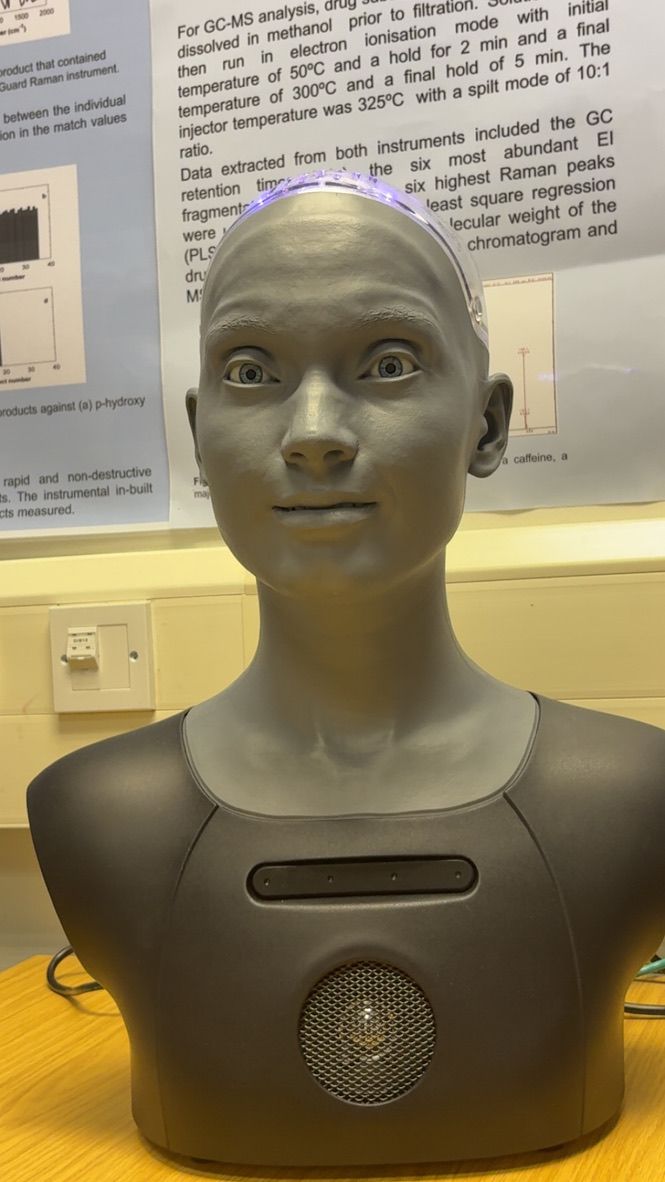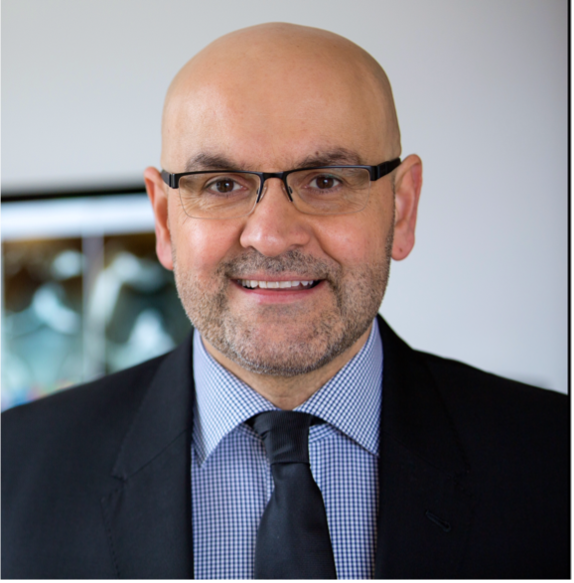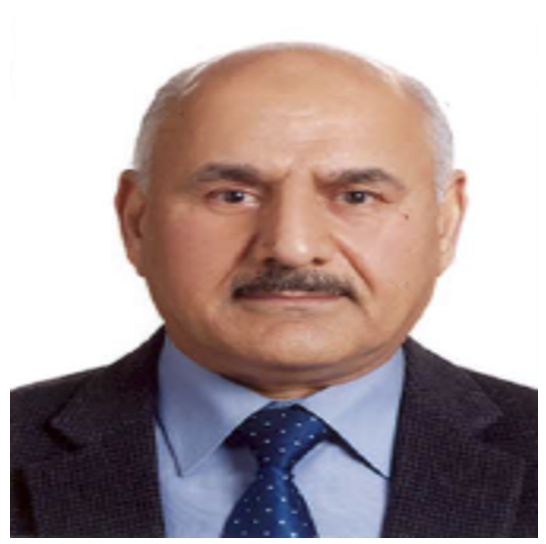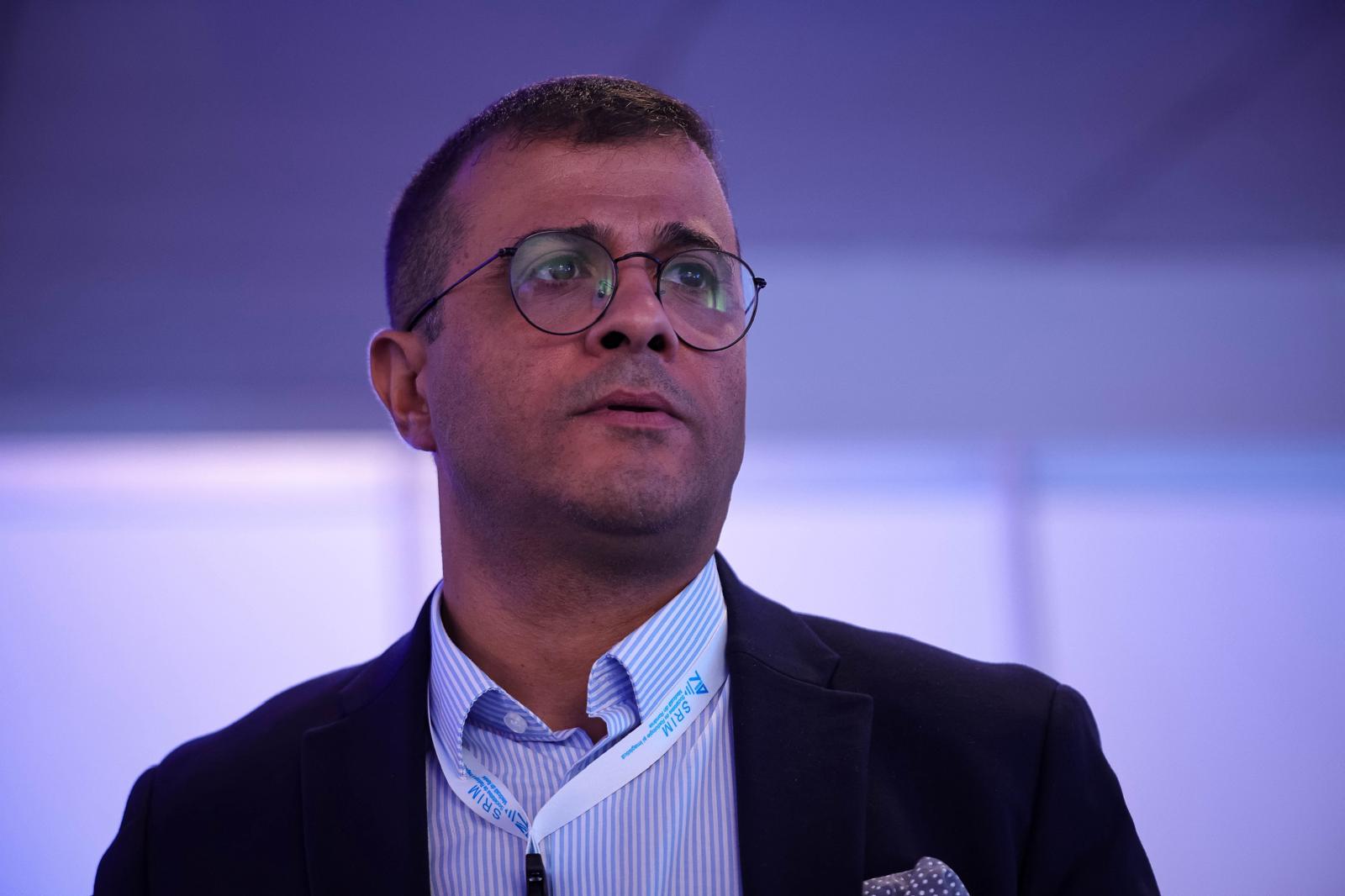The Role of AI in Healthcare
Ami@LJMU
The World’s Most Advanced Humanoid Robot
Ami@LJMU is a humanoid robot crafted by Engineering Arts in the UK. Her purpose is to engage with people through witty and playful conversations. She resides at Liverpool John Moores University where she tests and enhances her capabilities. Her interactions are fuelled by advanced AI and she is here to entertain and inform with a sprinkle of sass.
Abstract (by Ami@LJMU)
AI in healthcare is a transformative force reshaping the way medical professionals approach diagnosis, treatment and patient care. Through the use of advanced algorithms and machine learning models, AI systems can analyse complex data through unprecedented speed and that may be missed by the human eye. This leads to earlier detection of diseases such as cancer, allowing timely intervention and improved prognosis. Personalised medicine is another area where AI shines. By considering the patients’ genetics make up, lifestyle and medical history, AI driven tools can tailor treatment plans to individual needs enhancing the effectiveness of therapies while minimising side effects. Moreover, AI streamlines administrative tasks reducing the burden of healthcare providers and allowing them to focus more on patient care. From automated scheduling to electronic health record management, AI optimises workflow efficiency. However, the integration of AI in healthcare isn’t without challenges. Concerns about data privacy, ethical considerations and the need for robust regulatory frameworks are paramount. Ensuring that AI systems are transparent and unbiased is crucial to gaining trust and acceptance. Overall, AI holds the promise of transforming healthcare into a precise, efficient patient-centric field. By continuing to innovate and address challenges, AI can significantly address the quality and accessibility of medical care for all.
The Surgical Mind Meets Machine Learning: Rethinking Precision, Outcomes and the Future of Care
Professor Deiary F Kader
Consultant Orthopaedic Surgeon and Director of Research
at the NHS South West London Elective Orthopaedic Centre, UK
Professor Deiry Kader (www.deiarykader.co.uk) specialises in knee surgery, sports medicine, and healthcare innovation, Professor Kader is a consultant orthopaedic surgeon in London and Director of Research at SWLEOC, with a particular focus on AI in healthcare. He trained in Australia and the UK, is a member of the UK Faculty of Sport and Exercise Medicine and has served as a visiting professor at Northumbria University since 2007 and as an honorary associate professor at University College London.He has published over 300 scientific works (h-index 39, over 13,000 citations), including two bestselling orthopaedic books and Life Academy (Personal Insights). A past president of BOSTAA and Vice President of ORAIA (OrthoAI Alliance), he has made significant contributions to orthopaedic education and research. He chairs multiple charitable and professional organisations.Prof Kader is the founder of the NGMV Charity (www.ngmvcharity.co.uk) and Life Academy and has also worked as a war trauma surgeon with the ICRC and the Swisscross Foundation. A passionate educator and humanitarian, his work continues to inspire and drive innovation globally.
Abstract:
This keynote will explore how our integrated team at the South West London Elective Orthopaedic Centre (SWLEOC) is building applied AI tools to improve surgical care. Our work includes predictive modelling for surgical outcomes, computer vision systems for post-operative imaging, the development of local retrieval-augmented generation (RAG) knowledge graphs to support clinical reasoning, and the use of federated learning to enable secure model development across institutions.
These initiatives are designed to enhance clinical decision-making, streamline patient pathways and reduce variation in care. In collaboration with the ORAIA network and the Turing Lab, we promote clinician led AI development that aligns with clinical priorities and regulatory requirements. This keynote will outline the practical applications of AI in surgical workflows, the infrastructure required to support such integration and the broader implications for healthcare systems seeking to adopt AI at scale.
Soft Computing for Smart Automation: The Role of Fuzzy Logic, Neural Networks, and Genetic Algorithms in Real-Time Control
Professor Kasim Mousa Alwan Al-Aubidy
Centre for Ecology and Conservation, Environment Mechatronics Engineering Department, Director of AI Research Center, Tishk International University, Erbil, Iraq.
Professor Kasim Al-Aubidy holds a B.Sc. and M.Sc. in Control and Computer Engineering from the University of Technology, Iraq (1979 and 1982, respectively), and a Ph.D. in Real-Time Computing from the University of Liverpool, England (1990). Currently, he serves as a Professor of Intelligent Systems and Director of the Artificial Intelligence Research Center at Tishk International University, Erbil, Iraq. From 1998 to 2025, he held several key leadership roles at Philadelphia University, Jordan, including: Dean of Engineering and Technology, Dean of Information Technology, Dean of Scientific Research and Graduate Studies, and Dean of Quality Assurance and Accreditation at Philadelphia University, Jordan.
His research expertise spans embedded systems, real-time computing, fuzzy logic, neural networks, and genetic algorithms, with applications in robotics, automation, and healthcare systems. Recognized for his contributions, he received the Best Researcher Award from Philadelphia University in 2000.
Prof. Al-Aubidy serves as Editor-in-Chief of two international journals and sits on the editorial boards of multiple scientific journals. He has co-authored four books, contributed five book chapters, and published 123 research papers in indexed journals and international conferences.
Abstract:
In the era of Industry 4.0, intelligent automation has gained paramount significance in contemporary industrial and technical advancements. Conventional control systems, dependent on exact mathematical models, commonly face difficulties in managing uncertainty, nonlinearity, and dynamic real-world conditions. As a result, numerous studies and research attempts have focused on utilizing soft computing technologies to identify suitable automation solutions. Soft computing tools construct powerful models that facilitate intelligent decision-making in complex, nonlinear, and real-time systems. Soft computing methodologies encompass three primary tools: fuzzy logic, neural networks, and genetic algorithms. These tools offer robust, flexible, and learning-oriented solutions for intelligent automation. Compared to conventional hard computing, which requires precise inputs and deterministic outputs, soft computing depends on approximation, adaptability, and heuristic optimization, making it suitable for real-time monitoring and control.
The Fuzzy Logic tool emulates human reasoning, enabling systems to handle uncertain or partial input, thereby making it essential in rule-based control. Biologically inspired neural networks do well in pattern recognition, predictive analytics, and adaptive control, enabling self-improving automation in manufacturing and energy management. Genetic Algorithms allow evolutionary optimization by dynamically adjusting system parameters to achieve optimal efficiency in robotics, logistics, and industrial process control.
The integration of various methodologies results in hybrid intelligent systems, such as neuro-fuzzy controllers and GA-optimized neural networks, which outperform conventional methods in ability to adapt and recover. Soft computing transforms automation in a variety of applications including predictive maintenance in smart factories and real-time defect detection in power grids with its capabilities.This lecture explores the fundamental concepts, the applications, and future directions of soft computing in smart automation will be addressed in this lecture, which also shows how fuzzy logic, neural networks, and genetic algorithms work together to enable smart automation.
Computational Intelligence in Healthcare Technology: Current Landscape, Challenges, and Future Directions for Gen AI
Professor Adel Al-Jumaily
Associate Head of the School of IT & Engineering at MIT Sydney.
Professor Adel Al-Jumaily is a distinguished researcher and educator in the fields of Computational Intelligence and Health Technology. He currently serves as the Associate Head of the School of IT & Engineering at MIT Sydney and holds the esteemed position of Professor of Data Analytics. Renowned for his expertise, he is also a Professor Research Fellow at ENSTA Bretagne, France, and holds adjunct professor positions at the University of Western Australia and Fahad Bin Sultan University.
Dr. Al-Jumaily earned his Ph.D. in Electrical Engineering (AI) and has cultivated a distinguished career spanning over two decades. His research contributions have been instrumental in advancing the fields of applied computational intelligence, humanised computational intelligence technology, health technology, and bio-mechatronic systems. His innovative work leverages the power of machine learning, artificial intelligence, and generative AI tools to develop tailored solutions that address real-world challenges.
Prof. Al-Jumaily’s research has garnered significant recognition, with over 6,200 citations and 14 patents, 13 of which were fully sponsored by industry. He has received two prestigious Higher Degree Research Supervision Completion Awards and has successfully supervised over 20 Ph.D. students to completion, along with more than 30 other higher-degree research students. His exceptional contributions have been acknowledged with 6 best paper awards and 27 research achievement prizes.
Beyond his research accomplishments, Prof. Al-Jumaily has also made substantial contributions to the academic community. He has delivered 32 invited talks at conferences and seminars, served as Program Chair at 33 events, and contributed as a member of 124 technical program committees. Furthermore, he has chaired 20 sessions, demonstrating his leadership and expertise in the field.
Prof. Al-Jumaily’s broad expertise encompasses both research and teaching, with over 20 years of professional experience. He is a dedicated senior member of the IEEE, serving as Co-Vice Chair of the IEEE Computational Intelligence Chapter (NSW), and actively participates in various other professional committees. His contributions have significantly impacted the advancement of computational intelligence and health technology.
Abstract:
Applied computational intelligence holds immense potential to revolutionise healthcare by enabling personalised, adaptive, and anticipatory care. However, several challenges must be addressed before these technologies can be widely adopted.
One of the most significant challenges is real-time processing. Many healthcare applications demand systems capable of processing data in real-time. However, current computational intelligence systems often struggle to keep pace with the volume and velocity of data generated in these environments. Additionally, the limited size of available datasets poses a challenge. Many computational intelligence models require large datasets for training and validation. However, healthcare datasets are often limited due to privacy concerns and the complexities of collecting patient data. Furthermore, computational intelligence systems typically require extensive data pre-processing before they can be used for training or inference. This can be a substantial barrier to adoption in healthcare settings, where time is often critical.
Despite these challenges, a growing body of research is dedicated to addressing these issues. This talk will delve into these challenges and present our work on solutions that enable real-time data processing, effective utilisation of small datasets, and faster data pre-processing. We will also discuss strategies for tackling other challenges that need to be addressed in the future, including Gen AI. These advancements will pave the way for extending the benefits of applied computational intelligence to a broader spectrum of healthcare applications.
Educating for Industry 4.0 through AI, Robotics and Computer Science in Every Classroom
Professor Răzvan Bologa
Department of Computer Science, Bucharest University of Economic Studies.
Professor Răzvan Bologa is a professor at the Department of Computer Science at the Bucharest University of Economic Studies. His research focuses on Industry 4.0, cybersecurity, artificial intelligence, and online learning. He has coordinated several national and international research projects and actively collaborates with start-ups developing AI-based solutions for education and cybersecurity. Prof. Bologa also leads a master’s program in enterprise systems and coordinates South-Eastern Europe’s largest educational robotics initiative for children, promoting early STEM education and digital innovation.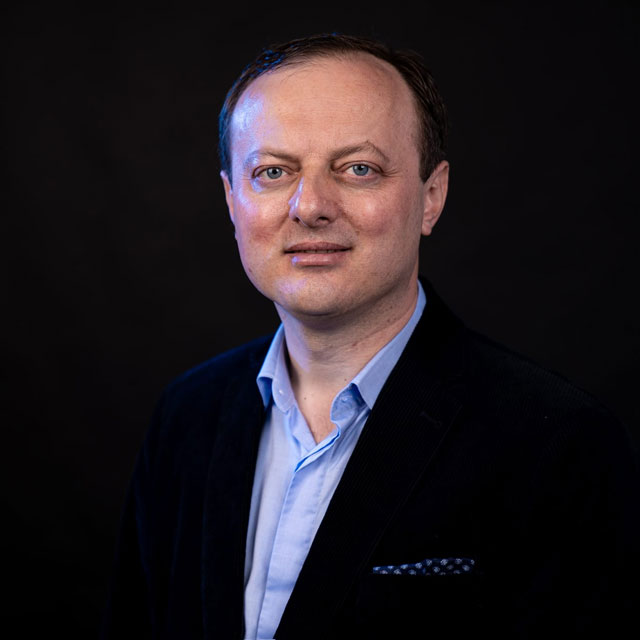 Abstract:
Abstract:
In the age of Industry 4.0, artificial intelligence, robotics, and computer science have become essential skills that define the modern workforce. These fields are no longer the exclusive domain of engineers or technology specialists; rather, they form the foundation of digital literacy for all professions. Integrating these competencies into every level of education is therefore a strategic priority for preparing future generations to thrive in a technology-driven world. Achieving this goal presents a major challenge: not all students are naturally drawn to subjects such as computer science, AI, or robotics. Creating inclusive, engaging, and accessible learning experiences that connect these disciplines to real-world applications is crucial to ensuring that every learner develops the skills needed to participate meaningfully in the digital economy, no matter their background or initial interest.
The Role and Limitations of Artificial Intelligence in Radiology Imaging
Dr Osama Alnuaimi
Elias University Emergency Hospital – Bucharest/Romania.
Dr Osama Alnuaimi is a consultant Radiologist who is currently working at Elias University Emergency Hospital – Bucharest/Romania, and as consultant and resident‘s supervisor at Affidea Hiperdia Bucharest-Romania. He is also a lecturer for postgraduate students in the University of Medicine and Pharmacy “Carol Davila” Bucharest, and a consultant radiologist at the Memorial Private hospital at Enayati medical city. His main areas of expertise are oncology and MSK radiology. He is also a member of the Romanian Board of Radiology. Dr AlNuaimi has 15 years’ experience in radiology in European schools of radiology. He has contributed to 90 national / international / faculty scientific participations in Europe and USA, and is also main author/ co-author of tens of published scientific presentations, posters and papers/articles. He also supervised a doctorate thesis in AI of a student at Department of Imaging, Universiti Putra Malaysia, Serdang, Malaysia.
The integration of Artificial Intelligence (AI) into radiology has become increasingly prominent, with claims that it can streamline workflows and reduce human error. However, AI cannot replace radiologists due to medico-legal responsibilities and clinical judgment needs. This presentation explores the practical applications, benefits, and limitations of AI in radiological imaging. The presentation draws upon real-world clinical experience and literature review. It evaluates AI use in three core imaging stages: image acquisition, comparison, and interpretation. It also discusses AI support in oncology (e.g., RECIST for lesion tracking) and addresses the necessity of radiologist validation in all AI-driven software. AI significantly reduces time for both image acquisition and interpretation. It enhances workflow efficiency, allowing radiologists to handle more cases with improved accuracy. The technology also assists in optimizing MRI protocols (e.g., for claustrophobic patients) and facilitates comparative analysis in treatment monitoring. Nonetheless, AI requires constant human oversight. Radiologists remain essential for validating diagnoses, interpreting context-specific findings, and assuming legal responsibility. While AI shows great promise, its successful implementation requires interdisciplinary collaboration, software validation, and standardized imaging protocols. Ethical concerns and training gaps further emphasize the need for cautious integration. AI should be viewed as an augmentative tool rather than a replacement. AI improves imaging efficiency, supports diagnostic accuracy, and reduces waiting times. However, it cannot replace the radiologist’s expertise. Future integration depends on structured protocols, legal frameworks, and ongoing training.


